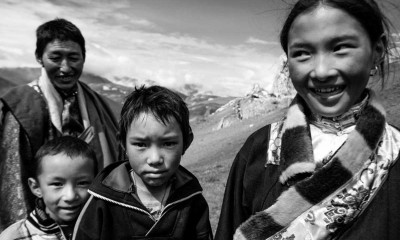- 03/31/2022
- Tags: Things to know about Tibet
- Himalayan Wander Walkers
Get to Know About Tibet
Generally, Tibetans are kind with nature and very easy going and may not mind if you are behaving inappropriately. But the Tibet is a quaint region that holds a rich culture and religion where they have their own tradition and lifestyle of living. There are things you must know before leaving for Tibet. So, you can show your respect for their culture and religions.
Contents [hide]
When dining in a restaurant

There is a special set of manners that you need to abide by while dining. People have to eat and drink silently. Use the right hand for traditional dishes like tsampa. Do not eat with your mouth open because it is offensive. You should always wait to eat until everyone is served.
When paying a visit to a Tibetan family

Remember it is taboo to touch kids’ heads with hands. If you are invited to a Tibetan house, do not step on the entrance. In order to pay respect, always add “la” after a person’s name. You can carry small gifts with you, which must include barley beer and butter tea. Sit cross-legged or with feet facing backward. Tibetans will normally serve their food and will not stop until you ask them to. To refuse politely, fold your hands and bow to them.
When visiting Monasteries

Visitors should not wear hats and keep their legs and arms covered. It is disrespectful if travelers wear shorts or skirts, hence, make sure you are in proper attire. Do not touch the objects present inside the monasteries or temples. Taking pictures is only permitted outside the temple. Again, your feet must not face any pious object or altars. Remain silent while you walk in the temple where the monks are chanting.
When purchasing souvenirs

Barkhor street is a great place to do shopping. Tibetan knives are not permitted on the flight so you have to parcel them from Tibet. While bargaining, you can start from half of the price.
When talking to the locals

Generally, the majority of Tibetans are friendly. Make sure that you take their permission before clicking their pictures. Do not feel weird if someone shows his or her tongue on the first meeting. This is a part of a greeting. Other manners include opening hands and touching foreheads.
What you Shouldn’t Do in Tibet

- Never buy products made from endangered wildlife or endangered plants.
- Don’t intrude upon local people’s homes, tents, lands, or private activities (such as sky burials). Show respect for inhabitants’ private property and personal space. Always ask permission before entering private property.
- Don’t be disrespectful at religious sites or family homes by wearing shorts or revealing clothing or kissing or touching intimately in public. Remove your hat and shoes unless instructed otherwise and don’t step over people or people’s legs. In Tibetan culture, feet are considered dirty. Don’t relax by putting your feet up on tables or chairs.
- Don’t swim in holy lakes, sit on holy objects such as many stones or walk on or step over prayer flags.
- Don’t encourage inappropriate begging by giving large sums of money to beggars or sweets to kids. However, begging is accepted in Tibetan society and is a part of the Buddhist generosity practice so subtly giving a small amount is accepted and appropriate.
- Don’t create dependency on hand-outs. It is best to encourage self-reliance. If you have the desire to help, donate to a trustworthy non-profit organization or charity, and make sure locals are involved in their decision-making processes so that they are indeed the beneficiaries of donations.
- Don’t hand out medicines without a detailed and proper explanation of the usage. Often it is better to encourage the use of local medical care if it is available.
- Avoid perceived political discussions or activities. You may get yourself or others in trouble.
- Don’t break local laws and regulations. If local laws are broken, your travel agency, tour guide, or host may be fined and may even lose their license. Remember that you are a guest in Tibet. Make sure you have the correct travel permits.
Talk to our travel experts to know about etiquette & taboo in Tibet before scheduling your trip.



